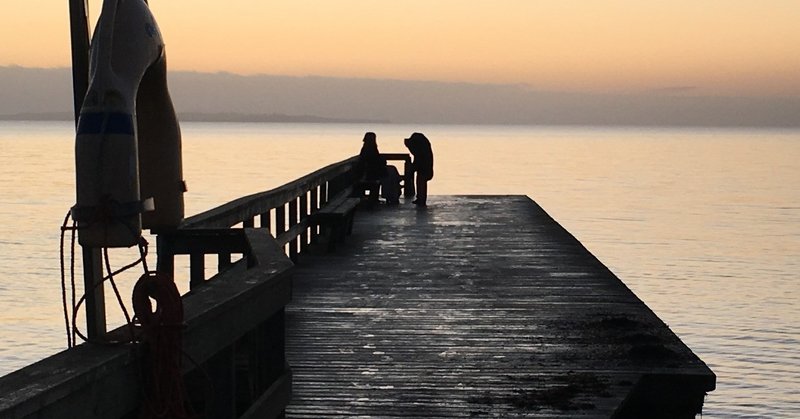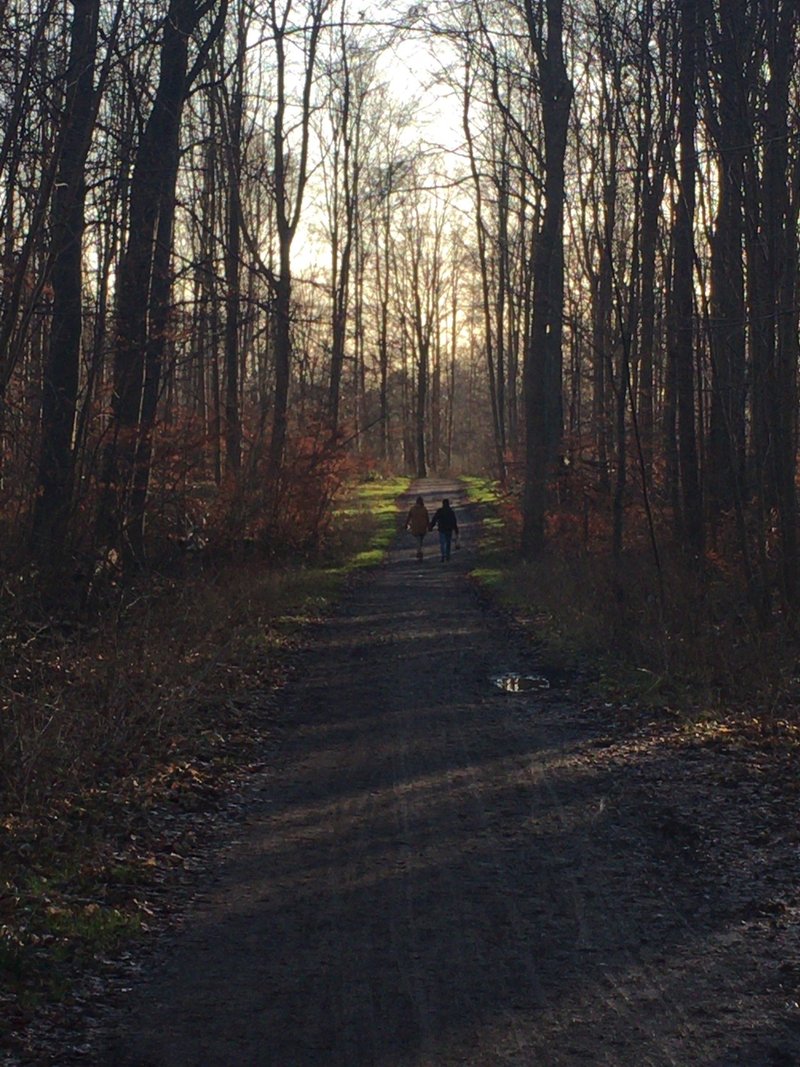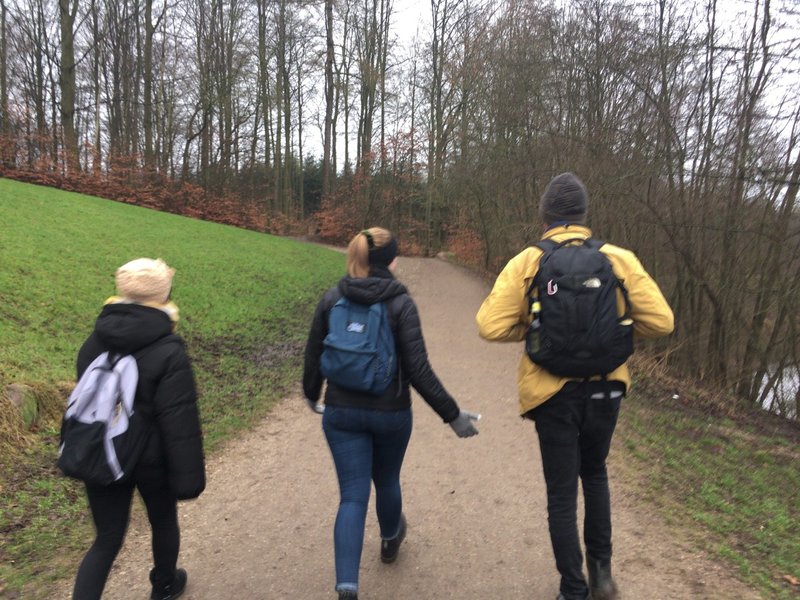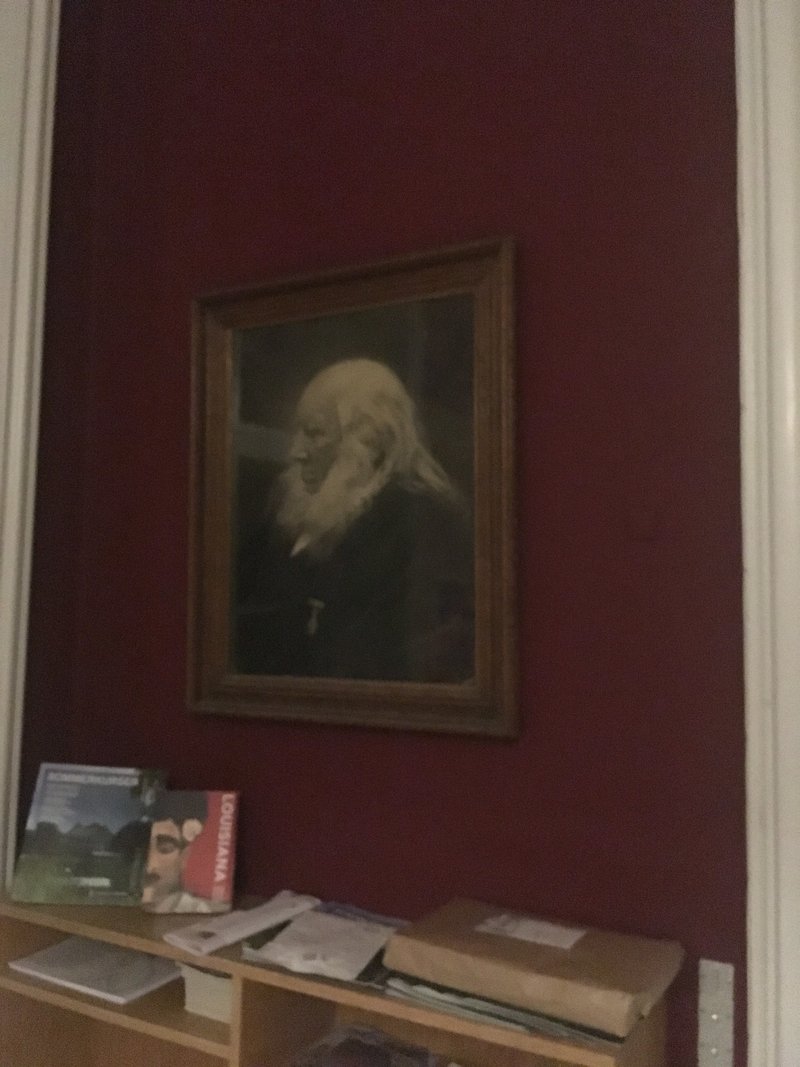
余白の感覚(No.3) Sense of Margins
1.「余白」を重んずる校風 A school style that values "Margins"
2. 「余白」の条件 conditions for "Margins"
1. Do what you want
2. Who you are
1.「余白」を重んずる校風 A school style that values "Margins"
「成人のための学校」に留学をして3週間。
長いながい時間の中を、ゆっくりと自分のこと、相手のこと、社会のこと、自然のことに想いをめぐらしながら過ごしている。
Three weeks have passed since I entered Krogerup Højskole.
I have lived a relaxed life while thinking about companion, social, nature and oneself.
ここで一番大切にされていることは、「余白の感覚」であるように感じる。
I feel that "Sense of Margins" is one of the most respected things.
時間的な余白。
ウィークデイの日中には、メインコースとエレクティヴの授業があるが、4時頃に終わる。全員でとる食事を除けば、あとの時間の使い方は自由。
"Time Magins"
The classes finish at 4 pm on weekdays. After that, students have "Free Time" except for dinner together.
心理的な余白。
自由時間がもたらす心理面への余白もさることながら、授業中においても心に余白をもつことが奨められているように感じる。コーヒーや紅茶を飲みつつのリラックス文化。
"Mentally Margins"
Not only Free Time but also "very relaxed feeling crass" with drinking coffee or tea have a positive impact and create margins on mentality.
頭の中の余白。
「対話の中」から授業が展開されていくという基本スタイルは、学びを風船のように膨らませていく。だけど、風船が飛び回るだけの余白は、常に頭の中にあるような。
"Margins in a Head"
Learning is developed through dialogue in classes as if balloons inflate in my head.
But in my head, margins always remains for balloons flying around.
自然がもたらす余白。
こうした余白は、学校の置かれている環境によるところも大きい。自然に包まれた環境のもと、学び・暮らすこと。
自然の時間に身体が同期することで、心理的にも、頭の中にも、余白がもくもくと広がっていくようだ。
"Nature brings Margins"
Why are these Margins born?
Maybe, natural environment surrounding school also have an great influence.
My body synchronize nature time, then Margins spread in both mind and head.

(学校を取り囲むようにしてそこにある森林 Always nature is there)
2.「余白」の条件 conditions for "Margins"
「成人のための学校」にとって鍵となっているように感じる「余白」。
さて、その「余白」を成り立たせている条件とは、何だろうか。
英語のフレーズにして、考えてみたい。
I feel that "margins" are one of key concept for følkehojskole where I am.
Now, let's thinking about "Conditions" for margins.
1. Do what you want
エレクティヴの授業で「Uncovering Denmark」という授業が毎週一回ある。
ディスカッション方式でデンマークの社会問題等を考えていく授業である。
I have eletive class named "Uncovering Denmark" in that everyone think about problem of Denmark's society once a week.
ある日、学校のある場所から離れた森へと出かけ、散策をしながら授業を行った。
One day, we went to the forest where is located at a distance from our school.
その後、先生の家に行き、食事とゲームをするという段となった。
寒さと疲れのせいで、ゲームに参加をする気力が湧いてこなかった。
後ろめたさを感じつつ、クッションを借りて寝てしまった。
After then, went to teacher’s house and took a dinner. And we played some games.
But, I was’t motivated to do it because of coldness and tired.
I fell asleep on the borrowed cushion while feeling just sense of guilt.
帰り際、クッションに書かれた言葉を指し示しつつTeacherにこう声をかけられた。「Do what you want!!」
Right before leaving teacher’s house, teacher talked to me that "Do what you want!!" while pointing the sentence written on the cushion.
「参加をしない」という行動に後ろめたさを感じていた自分にとっては、Teacherにかけてもらったその言葉をどう受け止めたらよいのか、戸惑った。
Because I had felt just sense of guilt, I just confused a little how to take his words.
だけど、時間を経た今、字義通り受け取って、ここにいる間の自分の言動の指針にしたい、とも思う。
But, now I want to take the words as it is.
それは、「他者の評価」や「視線」が行動の元になることが多かった自分にとっては、勇気が要り、チャレンジングなことでもある。
That is challenging and courageous for me, because I had often worried about what other think.
だが、それ(「Do what you want」)が許される、言い換えると、重んじられている環境が、成人のための学校にはある、と感じている。
However, I feel that behavior like "Do what you want" is well-recognized and well-respected here.

(その授業の様子。歩きながら、自然に触れながら、考えを深めていくようなスタイルであった。右側で共に歩を進めるのはTeacher。)
2. Who you are
「Do what you want」を下から支えているのが、「Who you are」 という感じがする。「あなたは・わたしは?」
I feel that "Do what you want" is based on "Who you are".
だけど、それは一人悶々と考えて答えを出す、という類のものでもない。But, it is not that just thinking in agony.
なぜなら、この学校はひととひとの、「共生」がその基盤となっているからだ。(下記・No.2参照)"Please refer to below" 【https://note.com/taktaktak_rooooo/n/ne071be3affba】
Because the school where I am is based on co-existing living.
共生の中、オープンマインドを持ち寄った生徒同士、生徒と教師間の「会話」や「対話」が校内では起きている。
(下記・No1参照)"Please refer to below" 【https://note.com/taktaktak_rooooo/n/ne1b4606572b4】
In co-existing living, a lot of "conversation" or "dialogue" is always occurring and spreading everywhere in this school.
とすると、「Who you are」 の問いへの応えは、自ずと会話の間、相手と自分との間、から見つけ出すこととなる。
So, I can always quest for the response to "Who you are" in conversation or gap between companions and myself.
もちろん、そこには言葉の壁、文化の壁等々、目に見えない障壁がたまにはある。
でもその分だけ、相手と自分の間に起こる「何か」は、自分を顧みるまたとない機会(or場)となっているようにも思える。
Sometimes, I feel invisible cultural differences.
However, accordingly, the response that happen between companion and myself empower me.
だから、今日も明日も、あきることなく自然と会話・相手を求める(志向する)自分がいる。
So, I have intension to conversation and companion every day.
相手との会話と、時間を、重ね合わせていく中で、「Who you are」(あなたは?わたしは?)が、少しずつ象られていくような感覚をもつ。
I feel that, while we live and talk together, the response to "Who you are" is becoming clearly little by little.

(図書館にかけられた、19世紀半ばにフォルケホイスコーレの理念を初めて唱えたグルントヴィの肖像。ハンサムだ。)
この記事が気に入ったらサポートをしてみませんか?
